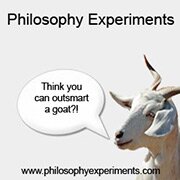Joshua Knobe continues our fiftieth issue series

tpm cover art by Felix Bennett
The most exciting development in recent philosophy, I think, is the reemergence of this traditional understanding of what philosophy is all about. Philosophers are once again pursuing questions about how human beings really think and feel, and they are once again suggesting that such questions might be deeply relevant to broader philosophical issues. But today’s philosophers are going after these issues using a somewhat different methodology. The aim now is to make progress on the traditional questions of philosophy using the rigorous empirical methods of cognitive science. Hence the emergence of the new field known as experimental philosophy.
At the heart of this new field is the idea that we can make progress on many of the age-old questions of philosophy – about ethics, politics, language – if we can come to a better understanding of the way people’s minds work. To aid in this endeavour, experimental philosophers actually go out and conduct experimental studies that examine the way people think about various matters of philosophical importance. So an experimental philosopher doing research on love might start out by conducting a series of experimental studies to get a better understanding of how people actually think and feel about love. Then, armed with these new empirical results, the philosopher would try to draw out implications for broader philosophical issues. This basic approach has already yielded surprising discoveries in a broad array of philosophical domains: free will, morality, knowledge, consciousness, even logic.
I feel a bit silly describing the rise of experimental philosophy in such dramatic terms, but it really has been something of a revolution. The field only came into existence a few years ago, and in that brief time, there has been an explosion of new research. There are now hundreds of published papers, an ever-growing array of conferences and special issues, discussions in mainstream media outlets like the New York Times and the BBC. If present trends continue, experimental philosophy might well turn out to be one of the most exciting fields in this next decade too.
Further reading
Experimental Philosophy, eds. J. Knobe & S. Nichols (Oxford University Press, 2008)
Joshua Knobe is assistant professor of philosophy at Yale University
Keep up with some of the most interesting ideas around by subscribing to tpm
 Email This Post
Email This Post 



Hey,
Would someone tell Felix Bennett that there are people out here that really appreciate his art.
About experimental philosophy, are the experiments similar to studies conducted in the social sciences? If so, I say trash the whole idea. It seems to me so little of what’s churned out by such studies withstand the next batch of PHD candidates’ theses.
The phrase “a better understanding of how the mind works”, surely kills off this piece. I’m not even going to explain why.
And take, anyway, the idea of philosophically - “empirically”, questioning people of what they think about “love”. Don’t we already know? Isn’t the language already set up for us, guiding us to no more than what it already presents?
This isn’t philosophy. It’s an attempt to provide the basis, and a rotton one, for the sort of invented, animistic, oxymoronic entities that populate the world of business-speak and information/brain sciences.
[...] recent years, there has been an increased interest in a pretty novel subset of philosophy—experimental philosophy. I myself am not too partial to experimental philosophy. From what I have seen, experimental [...]